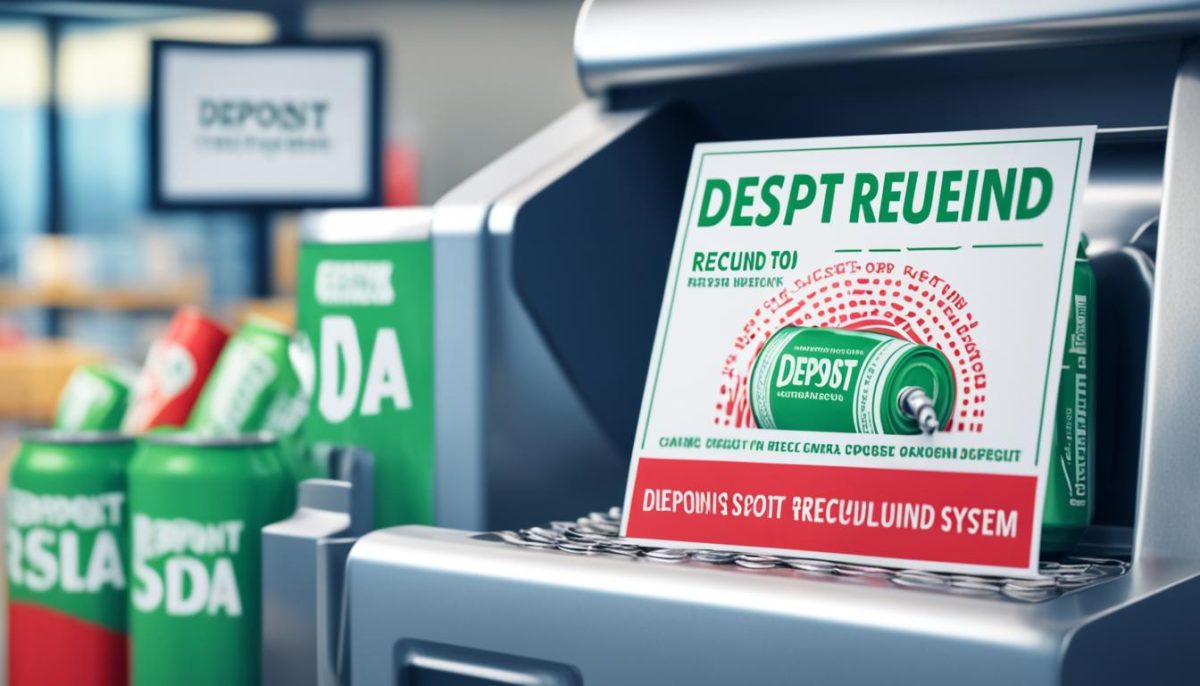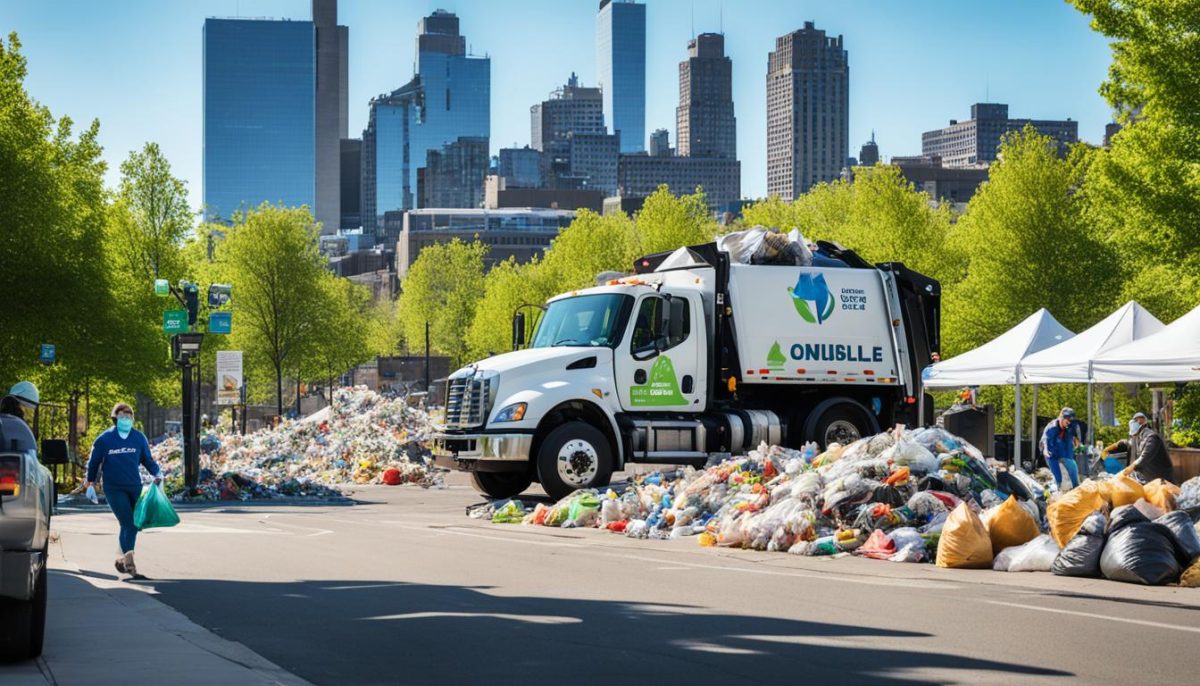
Welcome to our article on the impacts of a Deposit Refund System for One-way Beverage Packaging on local authority waste services. In this section, we will explore how the implementation of this system can have a significant impact on waste management and recycling efforts undertaken by local authorities. We will discuss the benefits and challenges associated with such a system and highlight its potential to improve overall waste service management.
Understanding the Deposit Refund System for One-way Beverage Packaging
Implementing a Deposit Refund System for One-way Beverage Packaging can have a significant impact on waste management and recycling efforts. To comprehend the system’s implications fully, let’s explore its inner workings and objectives.
The Deposit Refund System operates by establishing a financial incentive for consumers to return their used one-way beverage packaging. It encourages responsible disposal and enhances recycling rates, contributing to a more sustainable environment.
Deposit collection is a vital component of the system, as it ensures proper retrieval of the packaging. Consumers pay an additional deposit when purchasing the beverage, which is refundable upon return. This widely encourages individuals to engage and participate in recycling initiatives.
Manufacturers and retailers play essential roles throughout the process. They are responsible for collecting the refunded deposit money and ensuring that the returned packaging is appropriately managed and recycled. By actively participating in the system, these stakeholders contribute to a circular economy that reduces waste and conserves resources.
This Deposit Refund System encompasses various types of one-way beverage packaging, including plastic bottles, aluminum cans, and glass containers. By incorporating a wide range of materials, it promotes the collection and recycling of different packaging formats, addressing the diverse preferences and consumption habits of consumers.
The system’s overall objective is to minimize environmental impact by diverting one-way beverage packaging waste from landfills and reducing littering. By incentivizing proper disposal and recycling, the system encourages responsible consumption and waste management practices.
| Type of One-way Beverage Packaging | Examples |
|---|---|
| Plastic Bottles | Water bottles, soda bottles, juice bottles |
| Aluminum Cans | Soda cans, energy drink cans, canned iced coffee |
| Glass Containers | Wine bottles, beer bottles, glass soda bottles |
This image illustrates the collection and recycling process at the heart of the Deposit Refund System. It showcases the circular flow of one-way beverage packaging, emphasizing the importance of proper disposal and return to support a sustainable future.
Transforming Local Authority Waste Management
The implementation of a Deposit Refund System for One-way Beverage Packaging has the potential to bring about a transformative change in the landscape of local authority waste management. This innovative system offers numerous benefits that can significantly impact recycling rates, reduce littering, and improve the cleanliness of public spaces.
By incentivizing consumers to return their beverage containers, the Deposit Refund System creates a clear pathway for increased recycling. Local authorities, in collaboration with manufacturers and retailers, can establish collection points where consumers can conveniently return their used packaging in exchange for a deposit refund. This not only promotes responsible recycling practices but also reduces the amount of waste that ends up in landfills or pollutes the environment.
As more and more consumers participate in the Deposit Refund System, the demand for one-way beverage packaging made from recyclable materials is likely to increase. This, in turn, encourages manufacturers to adopt more sustainable packaging solutions, contributing to a circular economy and reducing the reliance on single-use plastics. The availability of a robust recycling infrastructure ensures that the materials collected through the system can be adequately processed and reintroduced into the manufacturing cycle.
Furthermore, the implementation of the Deposit Refund System can have financial benefits for local authorities. With higher recycling rates and reduced waste management costs, local authorities can achieve significant cost savings. The revenue generated from unclaimed deposits can also be reinvested in waste management programs, infrastructure enhancements, or public awareness campaigns, further strengthening the local authority waste management efforts.
Benefits of implementing a Deposit Refund System:
- Increased recycling rates
- Reduction in littering
- Cleaner public spaces
- Promotion of sustainable packaging materials
- Cost savings for local authorities
- Opportunities for revenue generation
Embracing the Deposit Refund System for One-way Beverage Packaging allows local authorities to take a proactive approach towards waste management and environmental sustainability. By working collaboratively with manufacturers, retailers, and consumers, local authorities can create a cleaner and greener future for their communities.

Ensuring effective waste management is crucial for the well-being of communities.
| Benefits | Examples |
|---|---|
| Increased recycling rates | 10% increase in recycling rates within the first year of implementation |
| Reduction in littering | 50% decrease in littered beverage containers found in public spaces |
| Cleaner public spaces | Improved cleanliness ratings in parks and public areas |
| Promotion of sustainable packaging materials | Transition from single-use plastics to recyclable materials |
| Cost savings for local authorities | $500,000 annual savings in waste management expenses |
| Opportunities for revenue generation | $100,000 revenue from unclaimed deposits used for environmental initiatives |
Overcoming Challenges and Building a Sustainable Future
Implementing and managing a Deposit Refund System for One-way Beverage Packaging comes with its fair share of challenges. One of the key challenges is logistics, as the collection and processing of the deposited packaging require efficient infrastructure and coordination among stakeholders. Local authorities need to ensure that there are enough collection points and processing facilities to handle the increased volume of packaging materials.
Consumer education is another challenge in the successful implementation of the system. People need to be aware of the benefits of participating in the Deposit Refund System and how it contributes to a circular economy. Providing clear and accessible information about the system and its impact on waste management will be crucial in motivating consumers to participate and properly dispose of their beverage packaging.
Moreover, potential fraud is a concern that local authorities must address. To maintain the integrity of the system, measures should be put in place to prevent counterfeit or ineligible containers from being redeemed for refunds. Regular audits and strict quality control procedures can help minimize the risk of fraudulent activities.
Despite these challenges, implementing a Deposit Refund System for One-way Beverage Packaging holds great potential for building a sustainable future. By incentivizing consumers to return their beverage packaging, this system encourages the use of recyclable materials, reducing the environmental impact of single-use packaging. Additionally, the deposit refund revenue generated can be invested in improving waste management infrastructure and implementing sustainable initiatives, further supporting local authorities in their efforts towards a greener and cleaner future.
